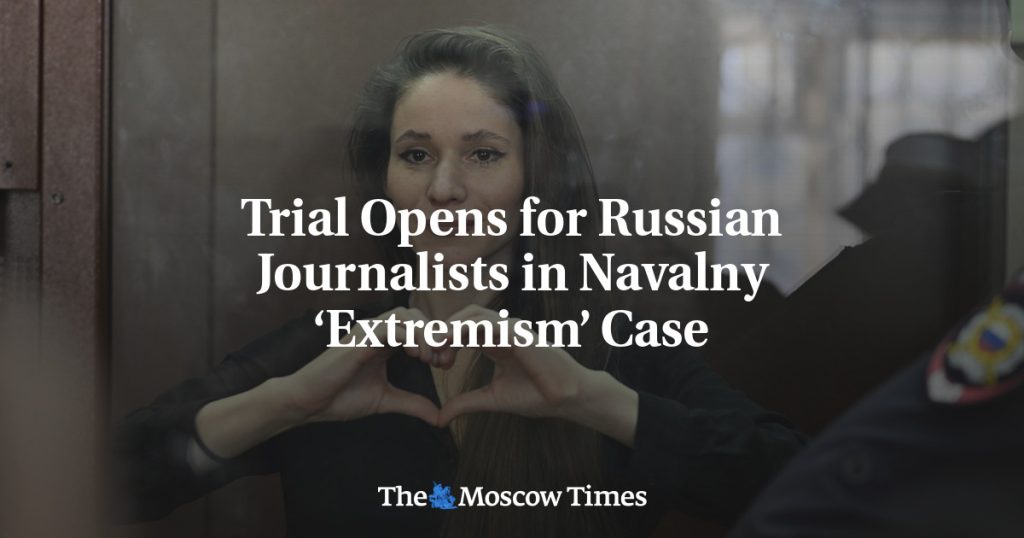Four Russian journalists are currently facing trial on charges of “extremism” for their alleged collaboration with late opposition activist Alexei Navalny’s team. The journalists, Antonina Favorskaya, Konstantin Gabov, Sergei Karelin, and Artyom Kriger, were detained earlier this year on accusations of participating in an extremist community. They are accused of collecting material, preparing, and editing videos for Navalny’s Anti-Corruption Foundation (FBK) and the NavalnyLIVE YouTube channel. If found guilty, they could face up to six years in prison. Russian authorities have banned Navalny’s activist and political groups, including FBK, as “extremist” organizations, putting employees, volunteers, and supporters at risk of criminal prosecution.
Video footage from the Nagatino District Court in southern Moscow showed onlookers applauding as the journalists were escorted into the courtroom by bailiffs. Antonina Favorskaya, one of the accused journalists, expressed optimism that the situation would improve and that people would no longer be sent to prison for their beliefs or profession. Favorskaya had previously covered Navalny’s court hearings and had filmed the last known video of him before his death in February. The journalists’ employer, the independent news outlet SOTAvision, has denied the accusations, stating that neither journalist had ever worked for Navalny’s organizations. Konstantin Gabov had worked for Reuters, Russian television channels Moskva 24 and MIR, as well as the Belarusian news agency Belsat, while Sergei Karelin had done work for the Associated Press.
The Moscow Times, an independent news outlet, issued a message to their readers regarding the challenges they are currently facing. The Prosecutor General’s Office of Russia labeled The Moscow Times as an “undesirable” organization, criminalizing their work and putting their staff at risk of prosecution. The outlet has also been unjustly labeled as a “foreign agent.” The authorities are attempting to silence independent journalism in Russia, claiming that the work of The Moscow Times discredits the decisions of the Russian leadership. The journalists at The Moscow Times refuse to be silenced and are seeking support from their readers in order to continue their work and defend open, independent journalism in the face of repression.
The trial of the four journalists is part of a broader crackdown on dissent in Russia, particularly targeting those associated with Alexei Navalny. Navalny himself has been a vocal critic of President Vladimir Putin and his government, and has faced multiple arrests and legal challenges over the years. The decision to ban Navalny’s organizations as “extremist” has further escalated tensions between the opposition movement and the Russian authorities. The imprisonment of journalists and activists for their association with Navalny’s team represents a worrying trend of silencing dissent and independent voices in the country.
The accusations of extremism against the journalists highlight the challenges faced by media professionals in Russia who are trying to report independently and hold the government accountable. The crackdown on independent journalism not only affects the targeted individuals but also has a chilling effect on freedom of expression and the free press in Russia. The international community has condemned the actions of the Russian authorities and called for the release of the imprisoned journalists and activists. The outcome of the trial of the four journalists will be closely watched as a barometer of the state of press freedom and human rights in Russia. Civil society organizations and human rights groups continue to raise awareness about the situation and advocate for the protection of journalists and activists in Russia.


